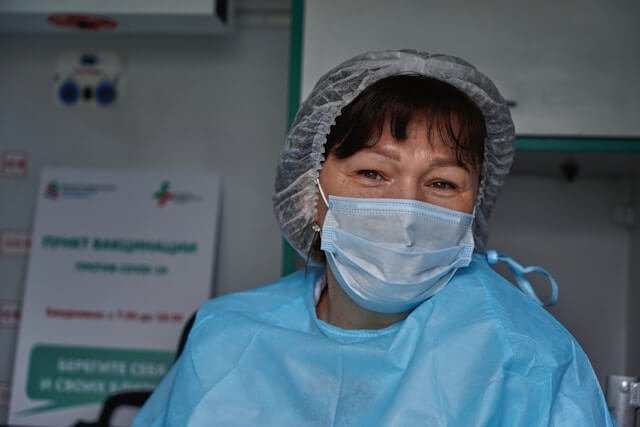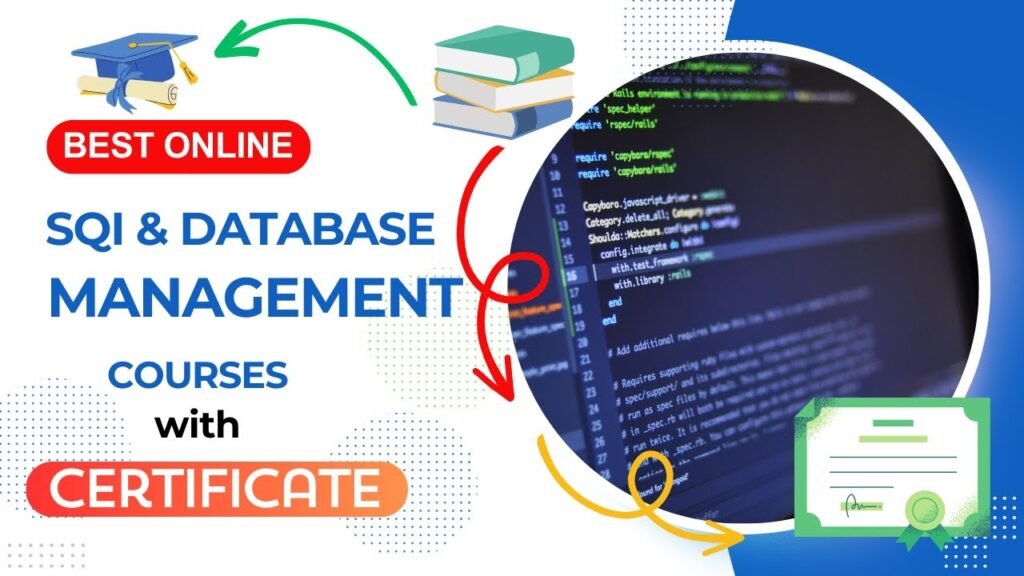In today’s complex healthcare landscape, the ability to manage and lead multidisciplinary teams has become one of the most critical skills for nursing professionals. The shift toward team-based care models has fundamentally changed how healthcare is delivered, requiring nurse leaders to coordinate efforts among diverse professionals while maintaining focus on optimal patient outcomes. For many nurses stepping into leadership roles, finding comprehensive training that addresses these challenges can be overwhelming. This is why a free healthcare leadership course has become an invaluable resource for developing essential team management competencies.
The importance of effective team leadership in nursing cannot be overstated. Research consistently demonstrates that healthcare units with strong leadership experience significantly better patient outcomes, reduced medical errors, and improved staff satisfaction. However, many nurses find themselves thrust into leadership positions without adequate preparation for the complex dynamics of managing multidisciplinary teams that include physicians, therapists, social workers, and support staff.
Modern healthcare environments present unique challenges that require sophisticated leadership approaches. Team members often work across different shifts, departments, and even locations, making coordination and communication particularly challenging. Additionally, the high-stress nature of healthcare work can create tensions that require skilled intervention and conflict resolution capabilities that many nurse leaders must develop through experience rather than formal training.
The Diploma in Nursing Leadership and Care Management course addresses these challenges by providing comprehensive training in team leadership, care coordination, and conflict resolution through a completely free, accessible format that accommodates the demanding schedules of working healthcare professionals.
The Foundation of Team-Based Care in Modern Healthcare
Healthcare delivery has evolved significantly from the traditional model, where individual practitioners work independently, to today’s collaborative approach that emphasises interdisciplinary coordination. This transformation reflects growing recognition that complex patient needs require diverse expertise and that effective teamwork directly correlates with improved patient safety and care quality.
Team-based care models have proven particularly effective in managing chronic conditions, coordinating complex treatments, and ensuring comprehensive patient support throughout healthcare journeys. These models rely heavily on effective leadership to coordinate efforts, facilitate communication, and maintain focus on patient-centred objectives while managing the competing priorities and perspectives of different disciplines.
The challenges faced by nurse leaders in these environments are multifaceted and demanding. They must balance clinical responsibilities with administrative duties while serving as liaisons between different professional groups that may have varying approaches to patient care. This complexity requires sophisticated skills in communication, delegation, conflict resolution, and strategic planning that extend far beyond traditional clinical training.
Multidisciplinary teams present unique leadership challenges because team members often have different educational backgrounds, professional cultures, and communication styles. Nurse leaders must learn to navigate these differences while building cohesive units that function effectively under pressure and maintain high standards for patient care delivery.

Essential Characteristics of Effective Healthcare Leaders
Successful healthcare team leadership requires a specific combination of personal qualities and professional competencies that enable individuals to inspire confidence, facilitate collaboration, and drive positive outcomes even in challenging circumstances. Understanding these characteristics provides a foundation for leadership development, helping aspiring leaders identify areas for focused improvement.
Vision represents perhaps the most fundamental characteristic of effective healthcare leaders. The ability to articulate clear goals and communicate how individual contributions align with larger organisational objectives helps team members understand their roles within broader care delivery systems. Leaders with strong vision can inspire commitment and maintain team focus during difficult periods when immediate challenges might otherwise overwhelm long-term objectives.
Communication excellence extends beyond simply conveying information clearly to encompass active listening, empathetic responding, and the ability to adapt communication styles to different audiences and situations. Healthcare leaders must communicate effectively with patients and families during emotionally charged situations while also facilitating productive discussions among team members who may have conflicting perspectives or priorities.
Confidence in healthcare leadership manifests not as arrogance or inflexibility but as the ability to make difficult decisions under pressure while remaining open to input and willing to adjust course when circumstances change. This type of confidence inspires trust among team members who need to believe that their leader can guide them through complex challenges while maintaining focus on patient welfare.
Supportiveness involves creating environments where team members feel valued, heard, and empowered to contribute their unique expertise to patient care efforts. Effective healthcare leaders understand that support takes many forms, from providing professional development opportunities to offering emotional support during difficult cases or personal challenges that team members may face.
These leadership characteristics are systematically developed through structured programs like the Diploma in Nursing Leadership and Care Management course, which provides practical training in building and demonstrating these essential qualities in real-world healthcare settings.
Also Read: Top Master Care Management Courses for Nursing: Free Diploma in Nursing Leadership
Best Practices for Leading Healthcare Teams Through Free Healthcare Leadership Course Training
Effective healthcare team leadership requires systematic approaches that address the unique challenges of coordinating diverse professionals in high-pressure environments. The best practices outlined below have been validated through research and practical experience across various healthcare settings, providing proven frameworks for successful team management.
Defining Roles and Responsibilities Clearly
Role clarity forms the foundation of effective team leadership in healthcare settings where confusion about responsibilities can directly impact patient safety and care quality. Successful leaders invest significant time and attention in ensuring that every team member understands not only their own responsibilities but also how their role interfaces with others on the team.
Clear role definition involves more than simply listing job duties; it requires helping team members understand the decision-making authority associated with their positions, the communication channels they should use for different types of issues, and the standards by which their performance will be evaluated. This clarity reduces conflicts and improves efficiency by eliminating confusion about who is responsible for handling specific situations.
Effective role definition also involves regular review and adjustment as team composition changes, new team members join, or organizational priorities shift. Leaders who maintain current, detailed role descriptions and communicate changes promptly help their teams adapt more quickly to evolving circumstances while maintaining high-performance standards.
The role definition modules within the Diploma in Nursing Leadership and Care Management course offer practical tools and templates for creating clear job descriptions, establishing decision-making protocols, and effectively communicating role expectations to diverse team members.
Fostering Open Communication Environments
Open communication represents a critical success factor for healthcare teams where information sharing can literally mean the difference between life and death. Effective leaders create environments where team members feel safe sharing concerns, asking questions, and proposing improvements without fear of criticism or retribution.
Building open communication requires intentional effort to establish psychological safety within teams. This involves demonstrating through words and actions that mistakes will be treated as learning opportunities rather than occasions for blame, and that different perspectives are valued and considered in decision-making processes.
Regular communication protocols help maintain information flow and ensure that important updates reach all relevant team members in a timely fashion. This includes establishing clear channels for urgent communications, routine updates, and non-urgent but important information that team members need to perform their roles effectively.
Feedback mechanisms enable two-way communication, allowing team members to share observations about team functioning, suggest improvements, and raise concerns about patient care or workplace issues. Leaders who actively solicit and respond to feedback demonstrate commitment to continuous improvement while building trust and engagement among team members.
Leading by Example and Accountability in Free Healthcare Leadership Course Applications
Healthcare team leadership requires consistent demonstration of the behaviours, attitudes, and standards that leaders expect from their team members. This modelling approach proves particularly powerful in healthcare environments where stress and pressure can make it tempting to cut corners or compromise standards.
Accountability in healthcare leadership involves taking responsibility for both individual and team outcomes while creating systems that enable team members to consistently meet their obligations. This requires balancing support with expectations and providing resources and guidance while maintaining clear performance standards.
Effective leaders demonstrate accountability by acknowledging their own mistakes, learning from failures, and making necessary adjustments to improve future performance. This approach creates cultures where continuous improvement becomes the norm rather than the exception, and where team members feel comfortable identifying and addressing problems proactively.
Recognition and celebration of achievements, both individual and collective, reinforce positive behaviours while building team morale and cohesion. Leaders who consistently acknowledge good work and celebrate successes create positive feedback loops that encourage continued excellence and commitment to team objectives.
Encouraging Continuous Education and Professional Development
The rapidly evolving nature of healthcare necessitates that team members engage in ongoing learning and skill development to maintain their competency and deliver optimal patient care. Effective leaders actively support and facilitate professional development opportunities while helping team members identify areas for growth and improvement.
Professional development support can take many forms, from providing time and resources for formal education to creating mentorship opportunities and encouraging participation in professional organizations. Leaders who invest in their team members’ growth typically experience improved retention, higher job satisfaction, and better patient outcomes.
Supporting team members’ participation in programs like the Diploma in Nursing Leadership and Care Management course demonstrates a commitment to professional development while building leadership capabilities throughout the organisation and creating a pipeline of qualified leaders to meet future needs.
Strategic Team Management in Healthcare Environments
Effective team management in healthcare requires systematic approaches that address both the routine coordination needed for daily operations and the crisis management capabilities necessary for handling unexpected challenges. The strategies outlined below provide frameworks for managing teams effectively while maintaining focus on patient care excellence.
Implementing Regular Team Meetings for Free Healthcare Leadership Course Outcomes
Regular team meetings serve multiple purposes in healthcare environments, providing forums for information sharing, problem-solving, collaborative planning, and relationship building among team members. However, effective meetings require careful planning and skilled facilitation to achieve their intended objectives without consuming excessive time or creating additional burdens for busy healthcare professionals.
Meeting structure and agenda development ensure that time is used efficiently and that important topics receive adequate attention. Effective leaders develop templates and processes that streamline meeting preparation, ensuring all relevant issues are addressed systematically.
Participation strategies help ensure that all team members contribute meaningfully to discussions rather than allowing meetings to be dominated by more vocal participants. This requires active facilitation skills and techniques for drawing out quieter team members while managing those who may tend to monopolize conversations.
Follow-up and action item management transform meeting discussions into concrete improvements and changes. Leaders who establish clear systems for tracking commitments and monitoring progress help ensure that meetings result in actual improvements rather than simply providing forums for discussion without action.
Documentation and communication of meeting outcomes help keep absent team members informed while creating records that can be referenced for future planning and decision-making. This systematic approach to meeting management demonstrates professionalism while ensuring that important information reaches all relevant stakeholders.
Utilizing Collaborative Tools and Platforms
Modern healthcare team management increasingly relies on technology platforms that facilitate communication, coordination, and information sharing among team members who may not always be physically present in the same location. Effective leaders understand how to select and implement these tools while ensuring that they enhance rather than complicate team functioning.
Communication platforms must be secure, user-friendly, and accessible across different devices and locations to accommodate the diverse work patterns of healthcare professionals. Leaders who successfully implement these tools provide adequate training and support while establishing clear protocols for their use.
Scheduling and coordination tools help manage the complex logistics of healthcare team operations, including shift scheduling, meeting coordination, and resource allocation. These systems can significantly improve efficiency while reducing the administrative burden on team leaders and members.
Information-sharing platforms enable teams to access current patient information, policy updates, and other resources needed for effective patient care delivery. However, leaders must ensure that these systems comply with privacy regulations while remaining accessible to authorized users.
Training in technology utilisation and team coordination tools is integrated throughout the Diploma in Nursing Leadership and Care Management, preparing healthcare leaders to effectively leverage modern platforms while maintaining a focus on patient care objectives.
Promoting Feedback Culture and Continuous Improvement
Feedback culture in healthcare teams involves creating environments where constructive criticism is welcomed, regular performance discussions occur, and continuous improvement becomes an integral part of team functioning. This requires sophisticated leadership skills in providing feedback effectively while receiving input from team members at all levels.
Regular performance discussions help team members understand how their contributions impact patient care while identifying opportunities for professional growth and skill development. These conversations require careful preparation and skilled communication to achieve positive outcomes while maintaining professional relationships.
Peer feedback mechanisms enable team members to share observations and suggestions with each other, creating opportunities for mutual learning and support. Leaders who facilitate these processes help build stronger teams while reducing their own workload in providing individual guidance and support.
Patient and family feedback provides valuable external perspectives on team performance, helping identify areas where improvements could enhance care experiences. Leaders who systematically collect and respond to this feedback demonstrate commitment to patient-centred care while creating opportunities for team learning and growth.
Quality improvement initiatives offer structured approaches for addressing identified problems, while engaging team members in the collaborative development of solutions. These processes help build problem-solving capabilities throughout teams while creating sustainable improvements in care delivery.

Free Healthcare Leadership Course Recommendations for Skill Development
The growing recognition of the importance of healthcare team leadership has created a demand for comprehensive educational programs that develop essential competencies while accommodating the practical constraints faced by working healthcare professionals. Traditional educational pathways often present barriers including cost, scheduling conflicts, and geographic limitations that prevent many qualified individuals from accessing leadership development opportunities.
The Diploma in Nursing Leadership and Care Management course addresses these barriers by providing comprehensive leadership training that is completely free and accessible to healthcare professionals worldwide. This innovative approach democratizes leadership education, ensuring that financial constraints do not prevent qualified nurses from developing essential team management competencies.
The program’s comprehensive curriculum covers all aspects of healthcare team leadership, including communication strategies, conflict resolution techniques, delegation skills, and change management approaches that prove essential for effective team coordination. Rather than focusing solely on theoretical concepts, the program emphasises practical applications that healthcare leaders can implement immediately in their work environments.
Flexibility is another key advantage of the Diploma in Nursing Leadership and Care Management, with self-paced modules that accommodate the irregular schedules and demanding responsibilities characteristic of healthcare practice. Participants can progress through coursework during breaks, between shifts, or during personal time without compromising their clinical responsibilities or family obligations.
Quality assurance through professional accreditation ensures that the program meets rigorous educational standards, providing verifiable credentials that employers recognise and value. This credibility distinguishes the program from numerous unverified online offerings that may lack educational rigour or professional recognition.
The team leadership components of the Diploma in Nursing Leadership and Care Management offer specialised training in managing multidisciplinary teams, coordinating care across departments, and resolving conflicts that frequently arise in healthcare settings. This focused attention on team dynamics addresses the real-world challenges that healthcare leaders face daily while providing practical tools and strategies for improvement.
Also Read: How to Learn Nursing Leadership Online: Free Nursing Leadership Course
Advanced Team Leadership Strategies Through Free Healthcare Leadership Course Training
Successful healthcare team leadership requires mastery of advanced strategies that address the complex interpersonal and organizational dynamics present in modern healthcare environments. These approaches build upon basic management skills to create sophisticated leadership capabilities that enable teams to excel even under challenging circumstances.
Managing Diverse Personalities and Work Styles
Healthcare teams typically comprise individuals with diverse educational backgrounds, personality types, communication preferences, and work styles, which can create both opportunities and challenges for team leaders. Effective management of this diversity requires understanding how different approaches can complement each other while preventing conflicts that might otherwise arise from misunderstandings or incompatible working styles.
Personality assessment and understanding help leaders recognise the unique strengths and potential challenges associated with different team members, enabling them to make more effective task assignments, communication approaches, and conflict prevention strategies. This knowledge enables leaders to craft team compositions that capitalise on individual strengths while providing support in areas where team members may need assistance.
Communication style adaptation involves adjusting leadership approaches to match the preferences and needs of different team members while maintaining consistency in expectations and standards. Some team members may prefer direct, concise communication, while others respond better to more detailed explanations and collaborative discussions.
Conflict prevention and early intervention become particularly important when managing diverse teams where misunderstandings can easily escalate into more serious problems. Leaders who understand common sources of conflict can implement preventive measures while developing skills for addressing issues before they significantly impact team functioning.
The diversity management modules within the Diploma in Nursing Leadership and Care Management course provide practical tools for assessing team member characteristics, adapting leadership approaches, and creating inclusive environments where all team members can contribute effectively.
Crisis Leadership and Emergency Coordination
Healthcare environments regularly present crisis situations that require immediate, coordinated responses from multidisciplinary teams. Effective crisis leadership involves maintaining calm under pressure while providing clear direction and coordination that enables teams to respond effectively to emergency situations.
Crisis communication requires different approaches than routine team interactions, with an emphasis on clarity, brevity, and immediate action rather than collaborative discussion and consensus-building. Leaders must be able to quickly shift their communication styles while ensuring that all team members understand their roles and responsibilities during emergency situations.
Decision-making under pressure involves making quick judgments with limited information while considering potential consequences and alternative approaches. This requires confidence balanced with flexibility, as initial decisions may need to be adjusted as situations evolve and additional information becomes available.
Resource coordination during crises often involves rapidly mobilizing personnel, equipment, and supplies while managing competing demands and priorities. Effective leaders develop systematic approaches to resource management that can be implemented quickly during emergency situations.
Post-crisis evaluation and learning help teams improve their emergency response capabilities while processing the emotional and professional impacts of challenging situations. Leaders who facilitate these debriefing processes help their teams build resilience while identifying opportunities for improved preparation and response.

Building Sustainable Team Excellence Through Free Healthcare Leadership Course Applications
Long-term team success requires systematic approaches that build capabilities, maintain motivation, and foster cultures of continuous improvement that persist even as team composition and organisational priorities evolve. Sustainable excellence involves creating systems and processes that support high performance while developing leadership capabilities throughout the team.
Succession Planning and Leadership Development
Effective healthcare team leaders recognize the importance of developing leadership capabilities among team members to ensure continuity and provide opportunities for professional growth. Succession planning involves identifying potential leaders and providing them with experiences and training that prepare them for expanded responsibilities.
Mentorship programs provide structured opportunities for experienced team members to share their knowledge and offer guidance to developing professionals, fostering relationships that enhance team cohesion and facilitate effective knowledge transfer. These programs benefit both mentors and mentees while creating more resilient teams.
Leadership rotation and development opportunities enable team members to experience different aspects of team management, gradually building confidence and competencies. This approach creates more versatile team members while providing leaders with support during busy periods or planned absences.
Supporting team members’ participation in comprehensive programs, such as the Diploma in Nursing Leadership and Care Management, demonstrates the organisation’s commitment to professional development while building a pipeline of qualified leaders to meet future needs.
Also Read: Essential First Aid Skills for Nurses. Free Online First Aid Certification Course
Conclusion: Excellence Through Effective Team Leadership
The complexity of modern healthcare delivery requires sophisticated team leadership capabilities that extend far beyond traditional management approaches. Effective healthcare team leaders must master communication, coordination, conflict resolution, and strategic planning skills while maintaining focus on patient-centred care objectives and supporting team members’ professional development.
The best practices and strategies outlined above provide proven frameworks for building and maintaining high-performing healthcare teams that deliver excellent patient care while creating positive work environments for healthcare professionals. However, developing these capabilities requires structured learning opportunities and ongoing practice in real-world settings.
The Diploma in Nursing Leadership and Care Management represents an exceptional opportunity for healthcare professionals to develop comprehensive team leadership skills without financial barriers or scheduling constraints. This free, accredited program offers the same high-quality education typically found in expensive graduate programs while accommodating the realities of healthcare practice.
Great patient care begins with effective team leadership that coordinates diverse professionals, facilitates open communication, and creates environments where everyone can contribute their unique expertise to achieve patient care objectives. Investing in leadership development yields benefits that extend throughout healthcare organisations and ultimately improve outcomes for the patients and communities they serve.
Start your leadership development journey today with Alison’s Diploma in Nursing Leadership and Care Management, and learn how to confidently lead healthcare teams while making a lasting impact on patient care delivery. This comprehensive, free training program will equip you with the skills necessary to excel as a healthcare team leader in today’s dynamic environment.




